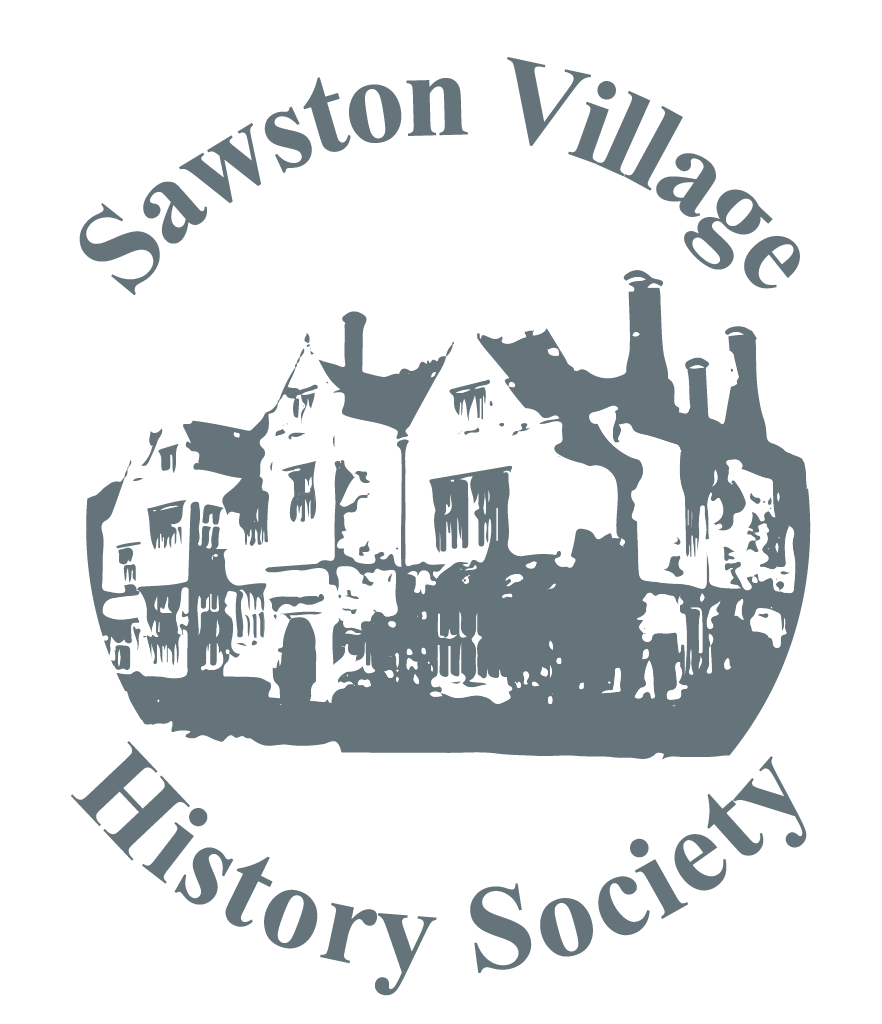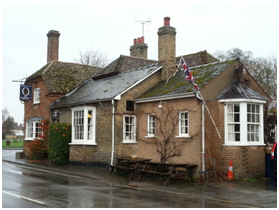

The speaker at the December meeting of the Sawston Village History Society did not come to tell us about his experiences while detained at Her Majesty's pleasure, but about his life as the landlord of the Queen's Head at Newton.
The Egyptians were the first we know about who brewed beer, and booze is a pharonic word in origin. However, what it tasted like must remain unknown since it was brewed from oats and wheat. The Romans had progressed on to wine, which they drank little and often, but unwisely diluted with water. When Julius Caesar invaded Britain, he found the natives drinking both beer and wine. Things had not changed by the time the Normans invaded. It was not safe to drink the water, so it was much better to stick to beer, which was home brewed by the women.
In olden times, travellers could obtain free accommodation at monasteries, but as turnpikes made travelling easier, coaching inns developed where horses could be changed and beer and food, together with a bed for the night, were available.
Moving forward in time to 1688 and the Glorious Revolution which brought William and Mary to the English throne and the gin craze instigated by soldiers returning from the continent. There were 500 distilleries in London alone. One advantage of gin was that it could be made from bad grain and could be flavoured with juniper. Although it was cheap to make, it was heavily taxed by parliament, whereas the 1833 Beer Act made beer cheap.
David Short's parents were almost teetotal, but in spite of this, in April 1962 they bought the pub in the small village of Newton. The value of stock, just mild and bitter, was £33. Village life then was very different: people stayed in the village. No women came into the pub except on high days. Facilities were very primitive, there were no flush toilets, and when electricity finally came, there were only three electricity sockets in the house. One old countryman known to your reporter said that the electric light was very good, "but I only switch it on when I want to go into the kitchen to get a candle".
A publican needs to be strong, and a good listener. He learns a lot about people. He has to be extremely placid to maintain the peace and avoid violence flaring up. He also needs to know when his customers have had enough to drink.
In the old days there was only mild and bitter beer. Mild was made without hops which act as preservatives and gives beer its bitter flavour. During the 1960s wine became fashionable, and gin held its place until the 1970s when it was pushed out by vodka. Sherry and port are also coming back into favour. Price of drinks is a reflection of demand. Gin has become very popular again and David kindly poured a taste for each of us.
Drinking vessels have gradually evolved from the wooden tankard, the pitch lined leather blackjack to the pewter or silver tankards of today. Another receptacle, unheard of today, but essential when chewing tobacco was fashionable, was the spittoon, also called a cuspidor. I remember my father quoting the rhyme "don't spit on the floor, use the cuspidor - that is what it's for!"
David's talk was most interesting and sparked off many memories of pubs visited over the years with old friends when we were much younger.
Jim Butchart